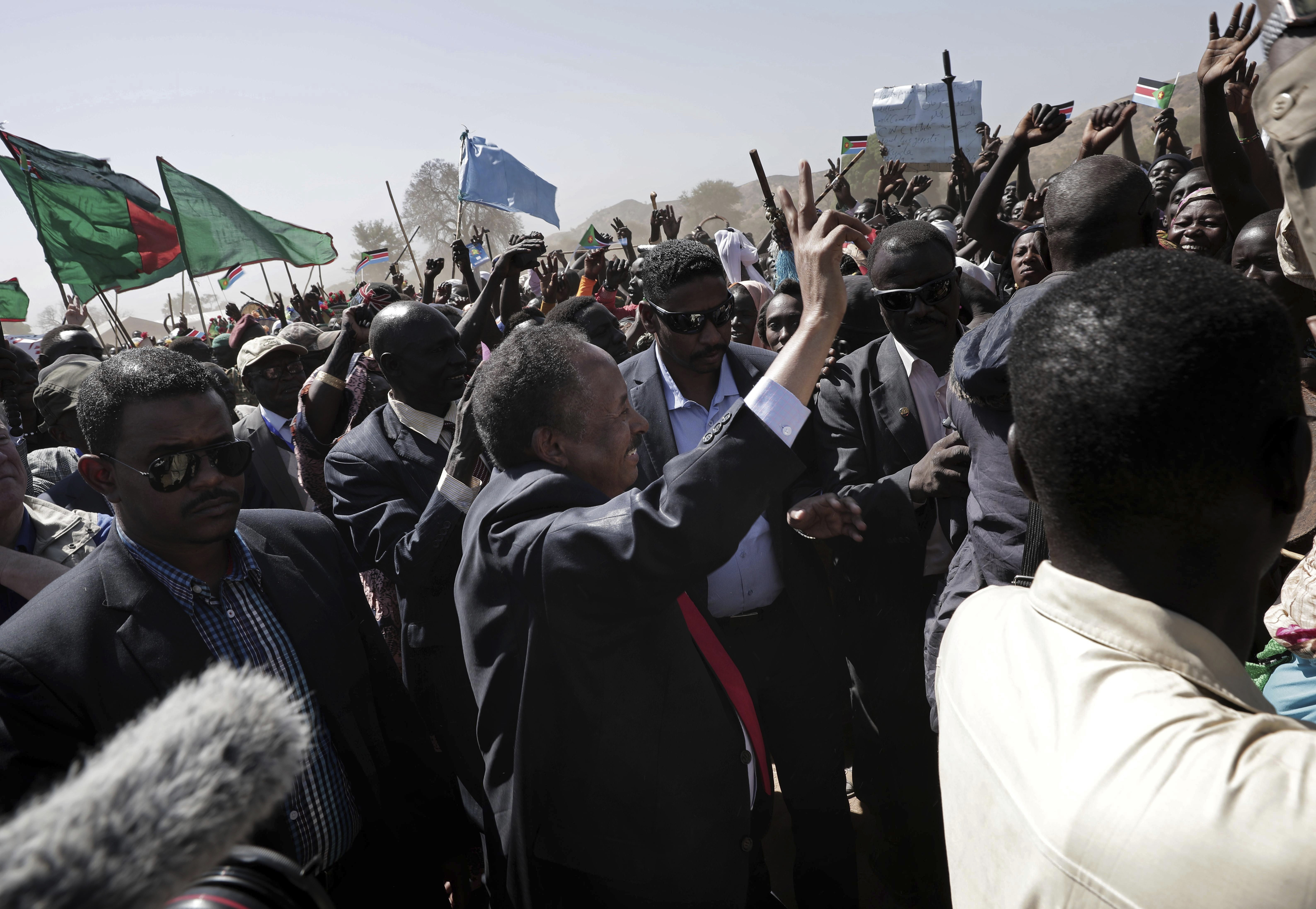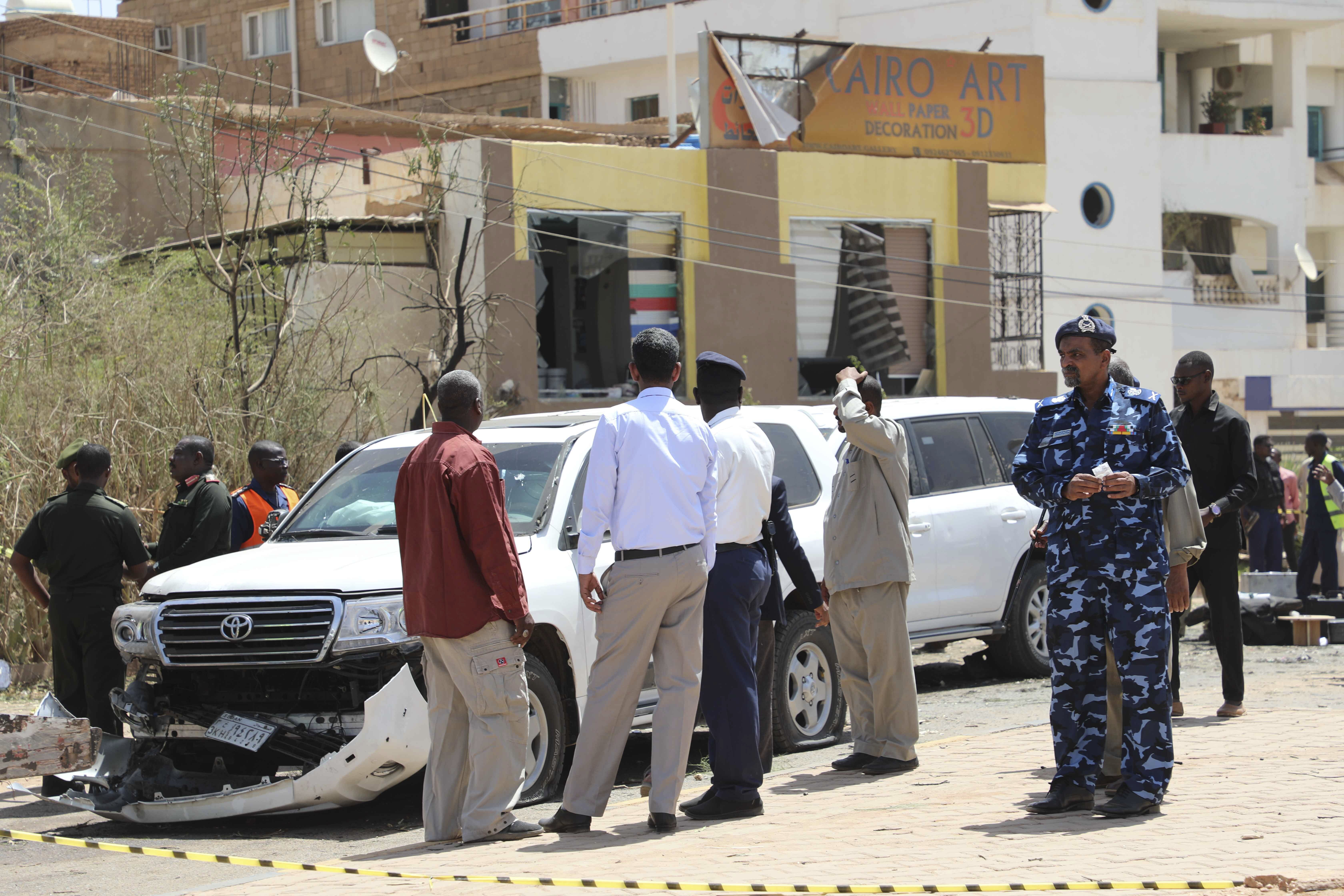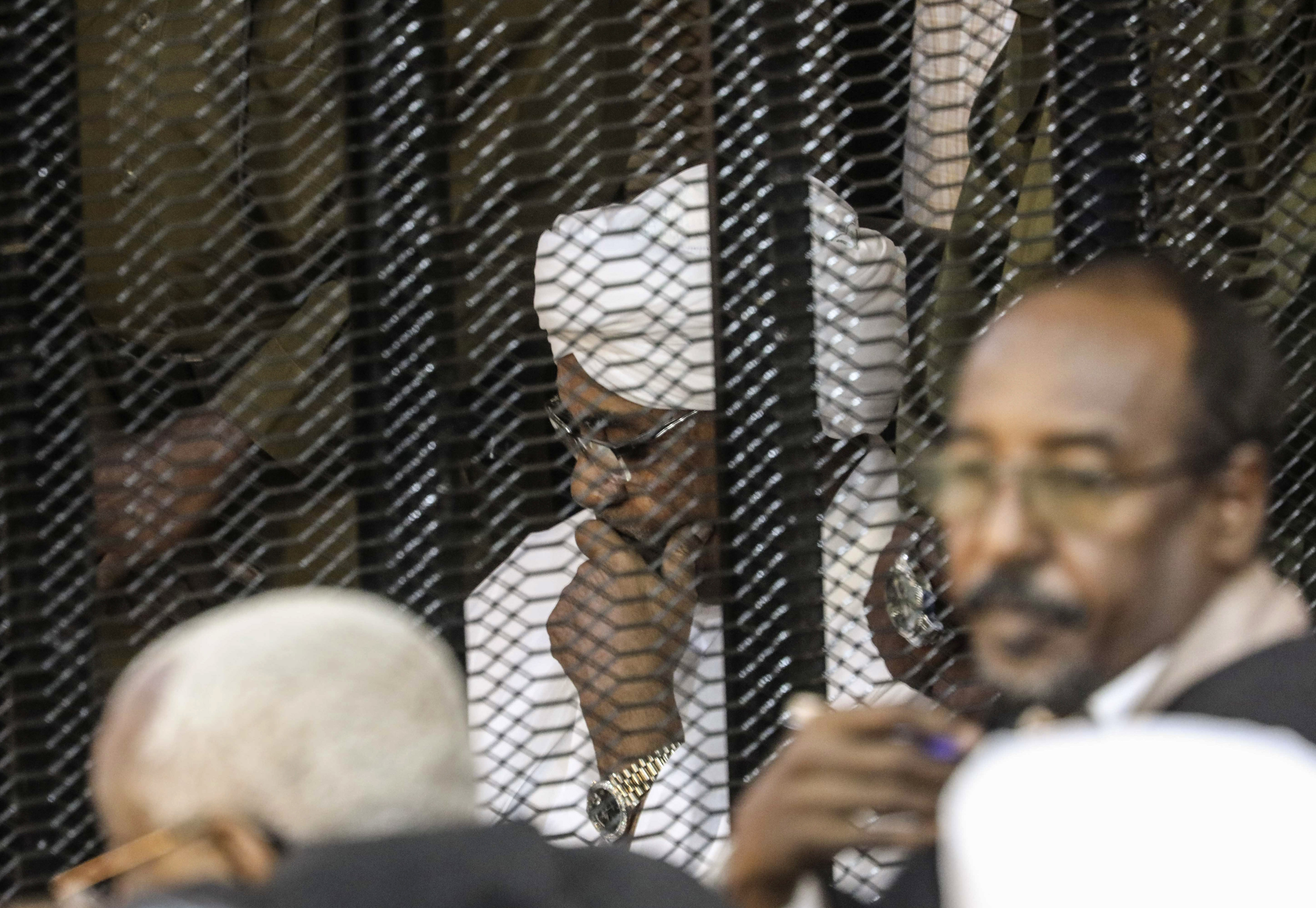Sudan's Prime Minister Abdullah Hamdok has survived an assassination attempt targeting his convoy in the capital Khartoum, state television and a source in the cabinet said on Monday.
Hamdok said he was in "good shape" and that what had happened would be "an additional push to the wheel of change in Sudan," where he heads a transitional government following the overthrow of longtime President Omar al-Bashir last year.
Read more:
Sudan's PM announces formation of transitional cabinet
Hamdok's government is struggling to manage a severe economic crisis that triggered months of protests against Bashir and continued after his downfall in April.

Sudanese Prime Minister Abdalla Hamdok (C) waves to people in the conflict-affected remote town of Kauda, Nuba Mountains, Sudan, January 9, 2020. /AP
Sudanese Prime Minister Abdalla Hamdok (C) waves to people in the conflict-affected remote town of Kauda, Nuba Mountains, Sudan, January 9, 2020. /AP
Three witnesses told Reuters the attack happened near the northern entrance to the Kober bridge, which crosses the Blue Nile from Khartoum North to the city center, where Hamdok's office is located.
The convoy appeared to have been targeted from above, they said. State radio said it had been hit by gunfire and a projectile, while state television said it had been targeted by a car bomb.
"I saw the moment of the explosion and the strike, and the strike came from a high building," one witness said.
Images broadcast on regional TV channels and social media showed a convoy, including several damaged white SUVs and a badly damaged car.
Large crowds of onlookers gathered as police tried to secure the site. One member of Hamdok's entourage suffered light injuries, a government statement said.
An investigation was launched into who was behind the attack, said Information Minister Faisal Salih. "Terrorist attempts and dismantling the old regime will be dealt with decisively. What happened not only targeted the prime minister himself but targeted the Sudanese revolution."

The vehicles that were part of Prime Minister Abdalla Hamdok's motorcade in Khartoum, Sudan, March 9, 2020. /AP
The vehicles that were part of Prime Minister Abdalla Hamdok's motorcade in Khartoum, Sudan, March 9, 2020. /AP
Tense transition
Hamdok leads a government of technocrats under a power-sharing agreement between the military and civilian groups for a transitional period due to last until late 2022.
Relations between civilians and the military have been tense, and the government has encountered resistance as it tries to implement economic reforms.
Transitional authorities are also taking steps to disempower Bashir's supporters, including parts of the security services.
In mid-January, armed security agents linked to Bashir fought soldiers in Khartoum for several hours, after a dispute linked to severance packages.
Soon after Bashir's overthrow, authorities said they had thwarted several coup attempts by military officers.

Sudan's autocratic former President Omar al-Bashir sits in a cage during his trial on corruption and money laundering charges, in Khartoum, Sudan, August 24, 2019. /AP
Sudan's autocratic former President Omar al-Bashir sits in a cage during his trial on corruption and money laundering charges, in Khartoum, Sudan, August 24, 2019. /AP
"The attempted assassination of Prime Minister Abdalla Hamdok is the new episode in a series of coup plots against the revolution," Khalid Omer, a leading member of the civilian coalition that backed last year’s uprising, said on Twitter.
Hamdok is an economist and former senior United Nations official who is well connected with the international community.
Britain's ambassador to Sudan, Irfan Siddiq, called Monday's incident "a deeply worrying event" which "reaffirmed the fragile nature of this transition and the vital role being played by the PM."
Thousands of anti-military protesters have held demonstrations in recent weeks to support Hamdok and his government.
After Monday's attack, the Sudanese Professionals Association (SPA), which spearheaded the anti-Bashir movement, called for further rallies to display unity and support for civilian rule, and witnesses said crowds had begun to gather around midday.
(Cover: Sudan's Prime Minister Abdalla Hamdok speaks during a press conference in Khartoum, Sudan, August 21, 2019. /AP)
Source(s): Reuters